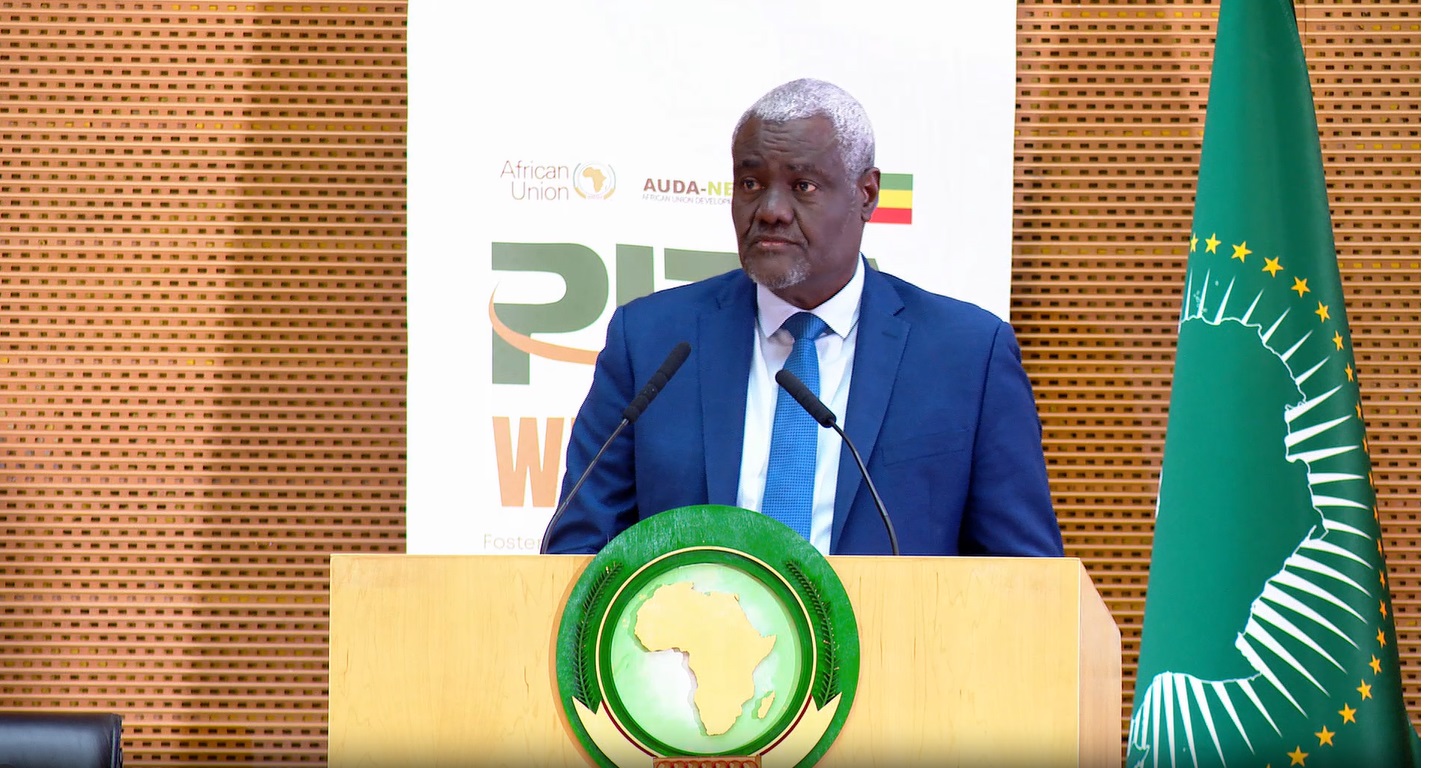PIDA Underpins Africa's Shared Vision for Integration, Sustainability, Says AU Chairperson - ENA English
PIDA Underpins Africa's Shared Vision for Integration, Sustainability, Says AU Chairperson

Addis Ababa November 26/2024 (ENA)- The Programme for Infrastructure Development in Africa (PIDA) remains a flagship initiative of the African Union, promoting integration and sustainability, Chairperson of the African Union Commission said.
The 8th Programme for Infrastructure Development in Africa (PIDA) Week has officially commenced today at the African Union Headquarters.
The event is themed: “Fostering Resilient and Inclusive Infrastructure for Africa’s Sustainable Growth: Leveraging Transformative Financing and Regional Integration.”
It emphasized the crucial role of innovation, collaboration, and transformative financing in bridging Africa's infrastructure investment gap.
Speaking during the occasion, African Union Commission Chairperson Moussa Faki Mahamat said that focusing resilience and sustainability to underpin PIDA thoughts and opportunities for shared prosperity.
The principle of ownership and partnership is at the very heart of strengthening and building the capacity of Africa for development, he said.
Moreover, he stated that these programs are essential in order to strengthen, consolidate peace and development through cross border mega projects which will integrate Africa.
The 2024 PIDA highlights the need for resilient and inclusive infrastructure in order to boost African economic growth with innovative means and the progress for executing integrative projects.
“Together we have to intensify our efforts and consolidate our economic base for an integrated, socially inclusive and economic resilience continent.Thus we will show that PIDA remains a platform for future sustainable infrastructure.”
Executive Secretary of the UN Economic Commission for Africa (ECA), Claver Gatete on his part said that infrastructure underpins Africa's transformation but gaps cut growth by two percent and productivity by 40 percent.
This is why the African Union's adoption of 69 PIDA projects in 2021 with an estimated cost of 160.8 billion US dollars is so critical.
He added that these projects provide a framework for addressing gaps in transport, energy, water and digital connectivity, among others. To be precise, these projects are not merely about physical assets, he said.
“We cannot contest the role of infrastructure as the foundation of our continent’s transformation. It enables connectivity, facial trade, and lays the foundation for inclusive growth.”
Yet the continent’s infrastructure gap remains significant, he added.
Moreover, he elaborated the Africa Continental Free Trade Area (AfCFTA) is a game changer for the continent and a transformative opportunity to Africa.
However, without robust and integrated infrastructure, the AfCFTA transformation potential will remain unrealized.
CEO for the Africa Union Development Agency- New Partnership for Africa's Development (AUDA- NEPAD), Nardos Bekele said on her part said that PIDA has become a premier platform for infrastructure development on the continent.
It serves as a vital space to evaluate progress, tackle challenges and forward partnerships, she added.
Moreover, the CEO added that the progress of PIDA over the past decade has been a testament of what Africa can achieve through determination and collaboration.
Commissioner for Infrastructure and Energy of AU, Amani Abou-Zeid said on her part that PIDA is the priority all governments, practically all the governments, to develop infrastructure.
However, we must always remember that regional infrastructure is the physical expression of our unity and go straight to the mission of the African Union and its purpose, unite Africa and PIDA is again an expression of that directly, hence its importance.”
She highlighted various achievements under PIDA program so far, including almost nearly 30 million Africans have gained access to electricity.
The overall electricity access rate on the continent is approximately 44 percent, which is very low, she said.
She added that 1000s of kilometers of roads and railways have been implemented, and connected in more than 30 countries under the PIDA program.
The continent is experiencing rapid urbanization growth, demographic growth.
“These are all placing increasing pressure on our infrastructure and simultaneously, the effects of climate change pose significant risks to the longevity and the sustainability of all the investments that we have put into this infrastructure,” she said.
To maintain a steady flow of investment and ensure that infrastructure can withstand climate related challenges, it is crucial to integrate climate resilience and digitalization into strategic planning, infrastructure policies in priority projects.